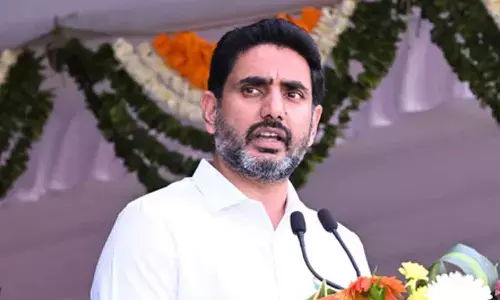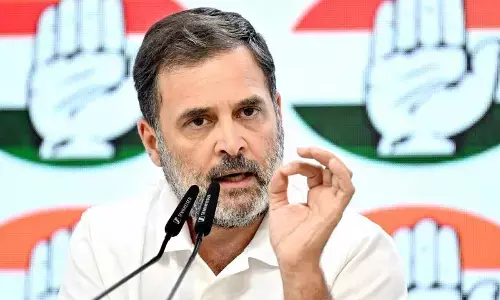No country is gender equal in the world
 No country is gender equal in the world
No country is gender equal in the worldEqual Measures 2030 has recently released the 2019 SDG Gender Index, which finds that nearly 40 per cent of women and girls, or 1.4 billion people, live in countries that are "failing on gender equality."
The Index reports that the world is furthest behind on SDG 5 (Gender Equality), SDG 9 (Industry, Innovation and Infrastructure), SDG 13 (Climate Action) and gender equality issues related to gender data and public finance, under SDG 17 (Partnerships for the Goals).
The index report titled, 'Harnessing the Power of Data for Gender Equality: Introducing the 2019 EM2030 SDG Gender Index,' examines the state of gender equality across 129 countries. The Index features 51 indicators across 14 of the 17 SDGs and 51 targets linked to gender issues. The Index ranks countries on a score of 0 to 100.
The global average of countries' performance is 65.7 out of 100, or "poor." Denmark scored 89.3, making it the highest-ranked country on the Index. Australia, Canada, Finland, Germany, Ireland, Norway, the Netherlands, Slovenia and Sweden are the other top-ranking countries.
The bottom ten countries all appear on the Organisation for Economic Co-operation and Development's (OECD) list of fragile states. They are: Sierra Leone, Liberia, Nigeria, Mali, Mauritania, Niger, Yemen, Congo, Democratic Republic of the Congo and Chad.
Overall, higher-income countries rank as having greater gender equality than lower-income countries. However, the Index finds that some countries perform better than would be expected based on their gross domestic product (GDP) per capita, including Finland, Georgia, Greece, Kyrgyzstan, Malawi, Rwanda, Slovenia and Vietnam. The report suggests further research to understand what budget decisions, laws or policies have enabled these countries to stretch their resources further than might be expected.
Other countries have lower gender equality scores than their countries' income levels might predict, such as Botswana, Iraq, Malaysia, the Russian Federation, South Korea, Switzerland, Turkey and the US.
The report emphasises that no one country is the world's best or worst performer across all Goals or all indicators, as there are "pockets of progress" even among the Index's lower performing countries and regions.
For instance, Denmark, the top overall performer, places 14th on SDG 4 (Quality Education), in part because the country has a lower percentage of women who have completed secondary school than other countries that score more highly on SDG 4.
Women are more likely to have family planning needs met in Brazil, China, Costa Rica, Nicaragua, Thailand and Uruguay, than in Canada, Denmark, the Netherlands, Norway and Sweden. Colombia's coverage of social assistance among its poorest people is better than in the US. Kenya has "very high rates of women using digital banking," higher than 75 per cent of the world's countries.
The Index finds that SDG 5 (gender equality) is one of the goals with the lowest overall scores, with 60 countries scoring "very poor" and 24 countries receiving a "barely pass." The indicators that most contribute to the poor average scores related to political representation (the indicator on percentage of parliamentary seats held by women and the indicator on percentage of ministerial/senior government positions held by women).
The Index also uncovers weaknesses in gender equality related to women's engagement in the digital economy, equitable access to the internet, parity in science and technology fields, and girls' and women's vulnerability to climate change, among others.
The report finds that countries have performed best on the gender equality-related issues to which coordinated and concerted funding and policy focus have been directed over the past 20 years. These areas include SDG 2 (Zero Hunger), SDG 3 (Good Health and Well-being), SDG 4, SDG 6 (Water, Sanitation and Hygiene).
The report states that this finding suggests a "hopeful message about the power of international efforts and public investment." Within this context, the report suggests that increased political, programmatic and financial investment in women and girls can help reach the gender-related SDGs.
The Index concludes that "no country has reached the 'last mile' on gender equality." The majority of the world's women and girls live in countries that are failing on gender equality or that are "barely" passing on gender equality.
The report emphasises that even the countries that score the highest have "more to do," especially on the more complex issues like gender-based violence, gender pay gaps, equal representation in powerful positions, gender budgeting and public services, and climate change.
Equal Measures 2030 works to ensure that girls' and women's movements, champions and advocates have the data they need, when they need it and in a form they can use to guide and drive policy, law and budget decisions to meet existing commitments in the SDGs to achieve gender equality.
(The author is an economist based at New Delhi)














